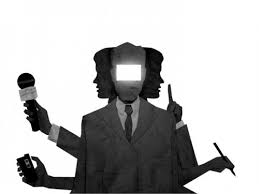The mass media must be inclusive and respectful, says the Holy See

Vatican City.- "To advance truth, freedom, justice and solidarity in society, the media - in whatever form - must be protected and the freedom that the international community has recognized must be guaranteed At the same time, it must be recognized that freedom of expression, like all human rights, has responsibilities that cannot be ignored. " This was highlighted by the delegation of the Holy See to the Organization for Security and Cooperation in Europe, OSCE, speaking at the second additional meeting on the Human Dimension of 2020, dedicated to issues of freedom of expression, of the media communication and information.
For the Holy See, the plurality of points of view, participation in public debates, control of the correctness and transparency of information also on social networks is intertwined with freedom of religion and respect for communities.
According to the Vatican News portal, the Holy See reaffirms the ethical foundation of the media in society, focused on "the person and the community" as an end and measure of the use of the media for integral human development, because "The media do nothing by themselves; they are tools, instruments, used as people choose to use them."
Freedom of expression and religion
It is not acceptable - the Holy See reiterates - to hide behind freedom of expression as a justification for discrimination, hostility or violence against a religion or its members. Freedom of expression must include respect and space for opinions, even if they are different, without excluding critical debates or serious discussions about religion. Accordingly, the Holy See encourages the media to report "fairly and accurately" on religious issues, allowing community members to voice their opinions and encouraging the development of specific guidelines.
Participation of religious communities in public life
In the intervention of the papal representation, the desire that the media also be inclusive and foster a rich and broad exchange of ideas and points of view and that the institutions involve representatives of religious communities in public debates to highlight that they can express their point of view on the basis of the moral convictions that derive from their faith and, in this way, make their contribution to the life of their respective countries.
The Holy See then places special emphasis on the use of the Internet, and in particular of social networks, which can become instruments and harmful vehicles for hate and denigration messages. To avoid this, Internet service providers and social media services should be encouraged, according to the Holy See, to adopt clear, transparent and non-discriminatory rules that prevent any form or behavior marked by intolerance.
The digital divide and its negative effects
To conclude, it highlights a reflection on what happened during the pandemic, where inequalities in access to information have placed people in even more vulnerable situations and at greater risk of suffering, particularly in societies and contexts of poverty. The digital divide between rich and poor - says the Holy See - could cost lives, especially when crucial information is not timely. Without access to responsible, transparent and up-to-date information, even greater inequalities are created in the midst of already widespread suffering. Thus, the Holy See's final appeal to "do everything possible to guarantee full and effective access to information for all along the paths of law and economic development
Vatican News Source






